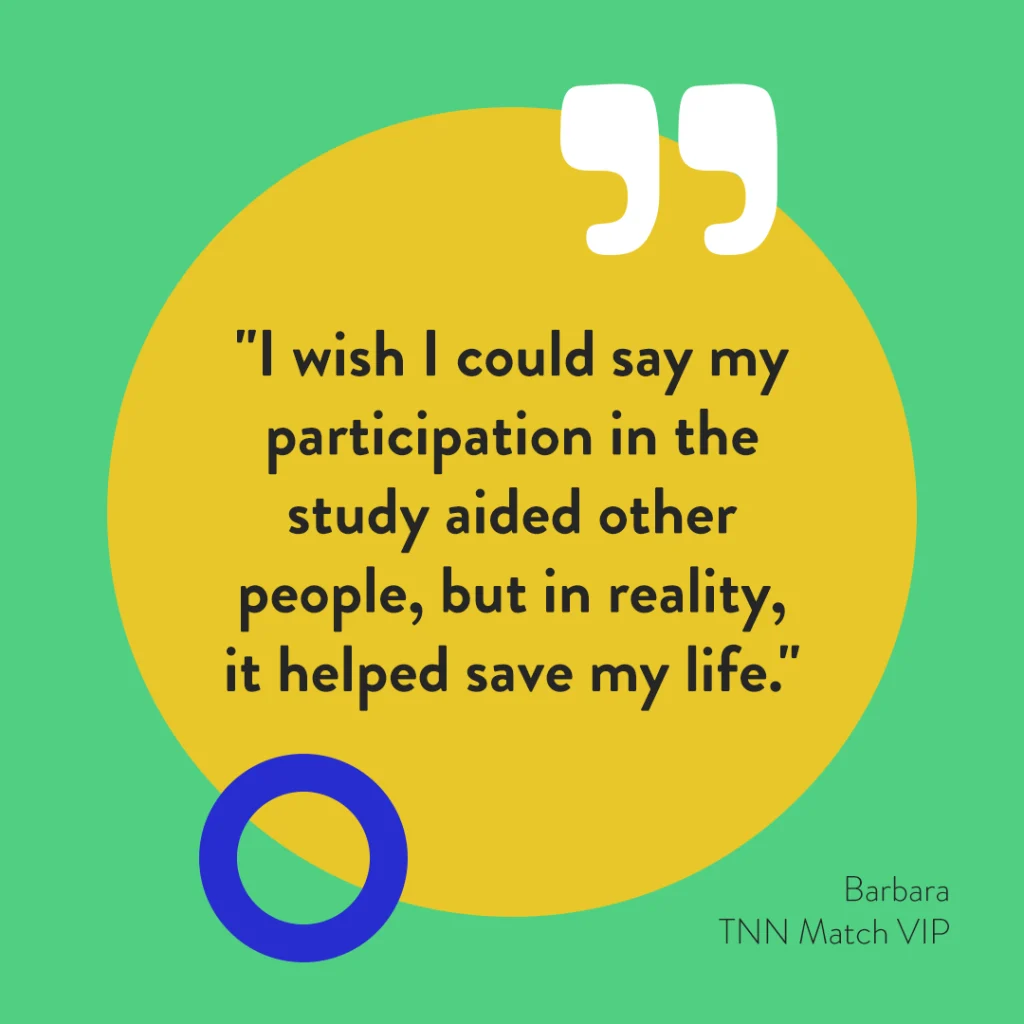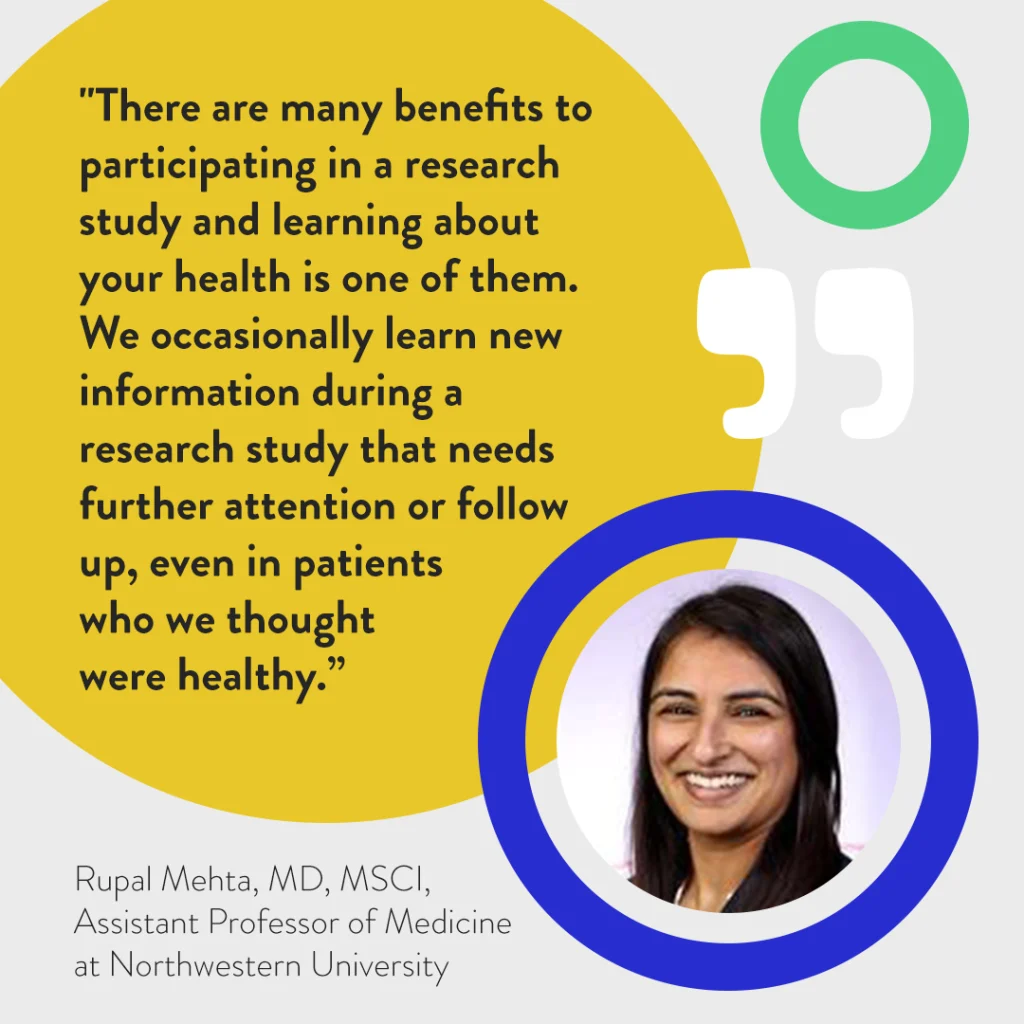From Study Participant to Life-Saving Stent



At 64 years old, Barbara had no idea that her heart had blockages.
Enrolled as a healthy control in a clinical trial that was investigating linkages between cardiac mechanics and kidney function, the research team suddenly stopped her as she was riding a stationary bicycle.
“I was wearing a mask and there was an ultrasound technician looking at my heart while my blood pressure was being monitored,” she recalled. “At first everything was fine, but as I worked harder pedaling, the study team noticed something was wrong. Right away they called principal investigator Rupal Mehta.”
It didn’t take long for Mehta, MD, MSCI, to arrive and explain that one side of Barbara’s heart was not working as optimally during exercise as it should be. Mehta recommended an appointment with a cardiologist as the best next step, but because of Barbara’s insurance, she needed to make the appointment at a different hospital.
“Dr. Mehta called my daughter to explain more about the findings, and the next day, Marija Zimkute from the study team was able to expedite an appointment at the cardiology clinic at Northwest Community Hospital,” Barbara says. “I wish I could say my participation in the study aided other people, but in reality, it helped save my life.”
Following that fateful study appointment, Barbara had an angiogram and received two stents — small mesh tubes used to treat narrowing in the coronary arteries, which provide the heart with oxygen-rich blood.
“I must now take medicine twice a day, but I feel lucky to be alive. I had no obvious symptoms that pointed to any problems with my heart, so it was a very shocking discovery, but one that saved me from something horrible like a heart attack.”
Barbara enrolled as a research study participant after her daughter came across the trial on The New Normal, an online participant matching portal meant to increase awareness of health research and give communities access to information about health research opportunities.
Mehta’s research team started using The New Normal to recruit healthy participants into their study approximately a year ago, having a great deal of success early on.
“There are many benefits to participating in a research study and learning about your health is one of them. We occasionally learn new information during a research study that needs further attention or follow up, even in patients who we thought were perfectly healthy.” says Mehta, a KL2 scholar alumna. In our current study, patients learn about their heart and lung health and we have had multiple individuals who have needed follow up on findings.”
Barbara remains grateful that medical research changed her life while holding the potential to affect others.
“I’m thankful to The New Normal study portal and my daughter for encouraging me to participate in the study. If the study wasn’t on TNN Match, we would have never known about it, and I probably wouldn’t know I had this heart condition until it was too late,” Barbara says. “Sometimes you hear stories about healthy people who suddenly die, and I am left to wonder if that could have been me.”
The New Normal is supported by the National Center for Advancing Translational Sciences (NCATS) of the National Institutes of Health (NIH) through Grant Number UL1TR001422 that supports the NUCATS Institute; Grant Number UL1TR002389 that supports the Institute for Translational Medicine; Grant Number UL1TR002003 that supports the Center for Clinical and Translational Science; and Grant Number UL1TR002240 that supports the Michigan Institute for Clinical & Health Research. The content is solely the responsibility of the authors and does not necessarily represent the official views of the NIH.
Written by Roger Anderson



